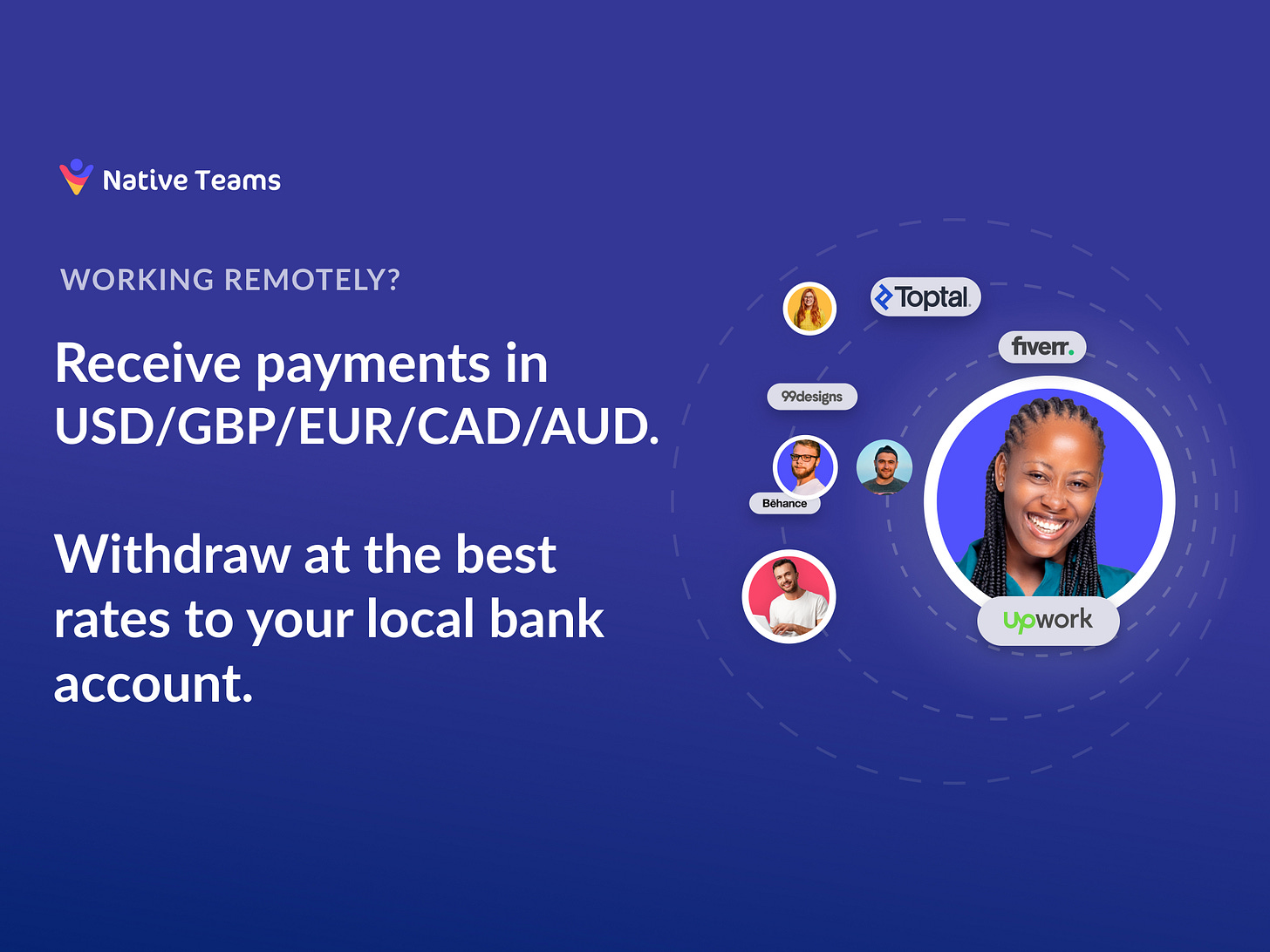What's happening in Sudan?
A reminder of the pan-African media challenge
Today’s Notadeepdive is 669 words. This edition of the newsletter is about news media and is a series of experiments on expanding some of the newsletter’s talking points. Today’s newsletter is written by Abubakar Idris who will also share his thoughts on Tingo Group and Hindenburg’s explosive claims later this week.
But first, let’s pay some bills!
TOGETHER WITH NATIVE TEAMS
Multi-Currency Payments At Your Fingertips!
Are you a freelancer or remote worker earning in USD, GBP, EUR, CAD, or AUD? Get paid through Native Teams and withdraw directly to your Naira account.
With $19 (8,800), you get;
- Our Multi-Currency Wallet.
- Invoice and send payment links to your clients in 50+ countries.
- Withdrawal at best rates to your local bank account.
Sudan war coverage shows the gap in Pan-African news
When the crisis in Sudan escalated in April, I noticed how and what media publications covered the situation. I observed that very few Africa-based media companies are actively covering this war. Now in its second month, the war has claimed the lives of at least 822 civilians and displaced over 1 million people, including another 250,000 who fled the border.
The war has gotten active coverage from the usual suspects: CNN, BBC, and Al Jazeera, among other international media companies. But there's very little interest from continental news publications. When Nigerian and Kenyan publications intensely but briefly reported on the Sudan Crisis, their coverage was limited to the evacuation of Nigerian and Kenyan citizens by their respective governments. Once the evacuation was completed, these publications moved on.
This indifference to the conflict in Sudan is a reminder of continental African media's challenges. Regional publications are too fixated on national issues — stories within their home countries — even when the biggest story of the day is happening in a neighboring country.
Unsurprisingly, most "truly" Pan-African media companies — outlets reporting on much of Africa — have headquarters outside the continent. The African Business Magazine is based in the UK; The Africa Report, Africa News, and French-language Jeun Afrique operate from France. Reuters, BBC Africa, and AFP, with rich timely news on the continent, are also international.
It's understandable why this happens. The popular retort is that regional media companies don't have the resources to cover the continent extensively. Many of these regional companies are struggling and can barely afford current staff salaries, let alone a continental expansion. And with limited access to financing and domestic billionaires' low interest in owning independent media companies, it's a surprise that legacy media still exists.
But even with the finite resources, regional media are reluctant to explore stories outside their territories. In several countries, local storytelling is below par. However, this inefficiency with regional media has significant consequences.
Media Narratives
Much of news media is driven by narratives, many people believe. And unfortunately, Africa and Africans have been subjects of negative international media narratives and stereotypes — including inaccurate accents, online fraud, pictures of kwashiorkor kids, and general imagery of a "hopeless continent."
In recent years, a new narrative has been on the rise from African countries' debt to China and Russia's "growing" influence on the continent. It suggests the continent has no agency.
African diplomats and business people frequently push back against these talks. Yet, these themes are stronger than ever, especially now that several African economies are struggling to repay their sovereign debts.
Africans and African observers are disappointed when international publications churn out articles hinged on these narratives. For example, recent reports claim that Russia's fake news is largely responsible for the "growing anti-West" sentiments in French-speaking West Africa. But frustratingly, these reports ignore or underestimate the role of France in the underdevelopment of these countries over the last century. The CFA franc — the currency used by French West Africa and a colonial relic — stands for "franc of French colonies of Africa" or "franc des colonies françaises d'Afrique." But this nuance is missing from international reports.
It's understandable why these stories are published in this manner. Every publication has its audience, and news editors ensure they publish stories for this readership.
Internationally, nobody cares about France. France is an ally to several Western countries, and with the theory of Democratic Peace, the chances that France will go to war against another Western democracy is currently low.
But China and Russia are not democracies, and their activities abroad are suspect to the average Western audience or government. African readers don't share these sentiments. And if they do, it's the reverse: they're more suspicious of France than China or Russia. If African media companies focus only on national stories, they will remain limited, small and unable to shape the international perception of the continent.
See you on Friday!




